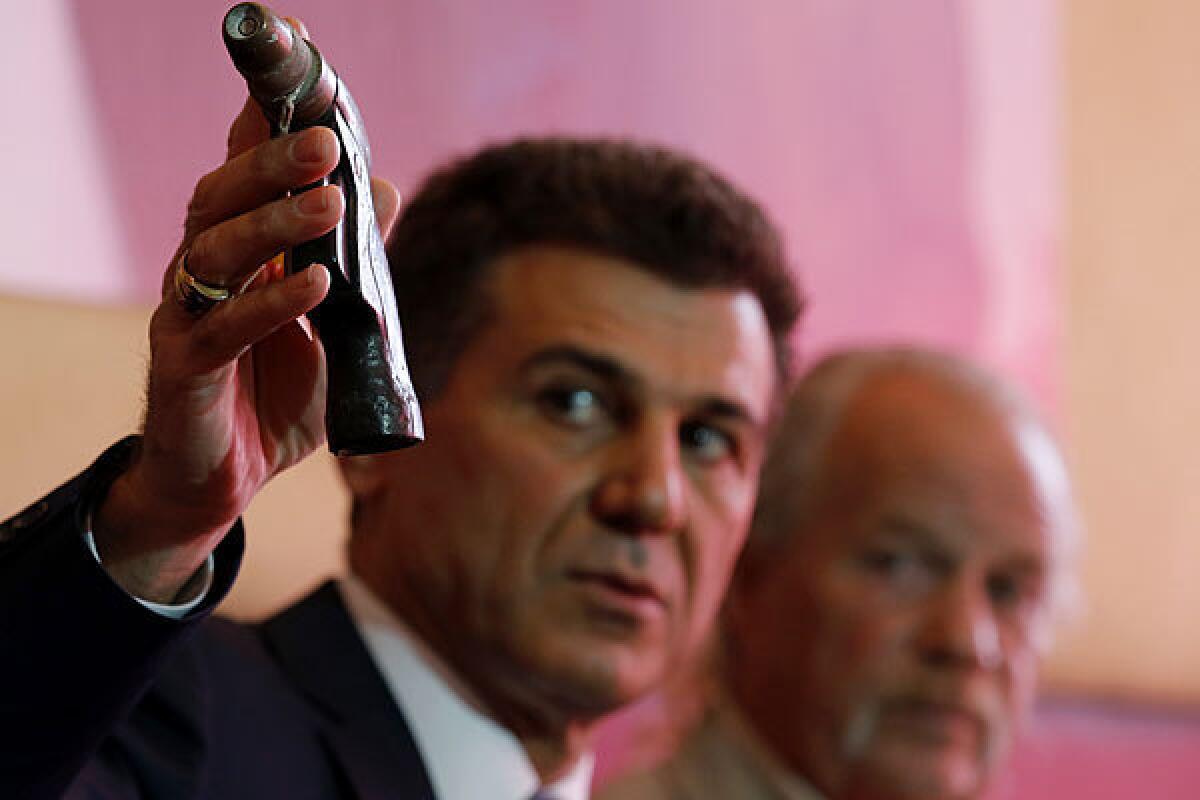State justices signal support for naming officers in shootings

- Share via
SAN FRANCISCO — The California Supreme Court appeared to be headed toward a ruling Tuesday in favor of requiring police agencies to make public the names of officers involved in shootings.
During a hearing, members of the state high court suggested that the California Public Records Act favors disclosure and questioned how police could justify secrecy when officers shoot people on the job.
The court is considering a case in which the city of Long Beach and the Long Beach Police Officers Assn. refused to disclose to The Times the names of Long Beach officers involved in shootings.
Justice Joyce L. Kennard asked if opponents of disclosure were ignoring “the right of the public to know.”
Justice Goodwin Liu pointed out that officers wear nameplates in public.
Justice Marvin R. Baxter asked whether police would also refuse to turn over the names of officers involved in heroism. Would that information be kept secret? he inquired.
“Not necessarily,” replied James E. Trott, representing the Long Beach police. “We’re concerned with the safety of lives.”
The case stemmed from a 2010 Public Records Act request by Los Angeles Times reporter Richard Winton. Winton asked for the names of officers involved in a fatal shooting of an unarmed man, Douglas Zerby, three days earlier, and the names of Long Beach officers involved in shootings during the prior five years.
The Long Beach Police Officers Assn. fought the request, losing in the trial and appeals courts and then appealing to the state’s highest court. The police group, joined by other California law enforcement associations, argued that state law bars disclosure of the names of officers involved in on-duty shootings.
They contend that publishing the names would endanger officers and their families because the Internet makes it possible to learn officers’ home addresses and phone numbers.
The city of Long Beach, siding with its officers, argued that each shooting is investigated internally and becomes part of an officer’s personnel file, which state law protects from disclosure.
“The name is tethered to the report,” said Christina L. Checel, a senior deputy city attorney for Long Beach.
The Times, joined by other media and the California-based ACLU, argued that the public was entitled to know the identity of officers who have used lethal force.
There is “no greater exercise of government power than the power to take someone’s life,” Kelli L. Sager, representing The Times, told the court.
Chief Justice Tani Cantil-Sakauye, whose husband is a retired police lieutenant, observed that state law contains a presumption in favor of disclosure and does not provide for blanket exemptions.
Exceptions are made only when there is evidence that a particular officer or his or her family faces a real threat, she suggested.
Justice Kathryn Mickle Werdegar noted that officers’ names may be learned from lawsuits that arise from shootings. She said she was troubled that the position taken by police agencies could always trump public disclosure.
Werdegar asked Sager how a police agency could show that disclosure of a name was not in the public interest. Sager replied that the police would have to show evidence of a real threat.
Just having a dangerous job would not be enough, the media lawyer said. She noted that judges, prosecutors and the news medi2a also sometimes receive threats.
A year after the shooting that sparked the litigation, the Los Angeles County district attorney’s office identified the two officers who killed Zerby and cleared them of misconduct. The officers had mistaken a garden hose nozzle for a gun.
The identities of officers who had previously been involved in shootings were never disclosed.
Sager said after the hearing that a growing number of police agencies have begun refusing to reveal the names of officers involved in shootings. The Los Angeles Police Department generally does disclose the names, she said.
A ruling by the high court is due within 90 days.
More to Read
Sign up for Essential California
The most important California stories and recommendations in your inbox every morning.
You may occasionally receive promotional content from the Los Angeles Times.











